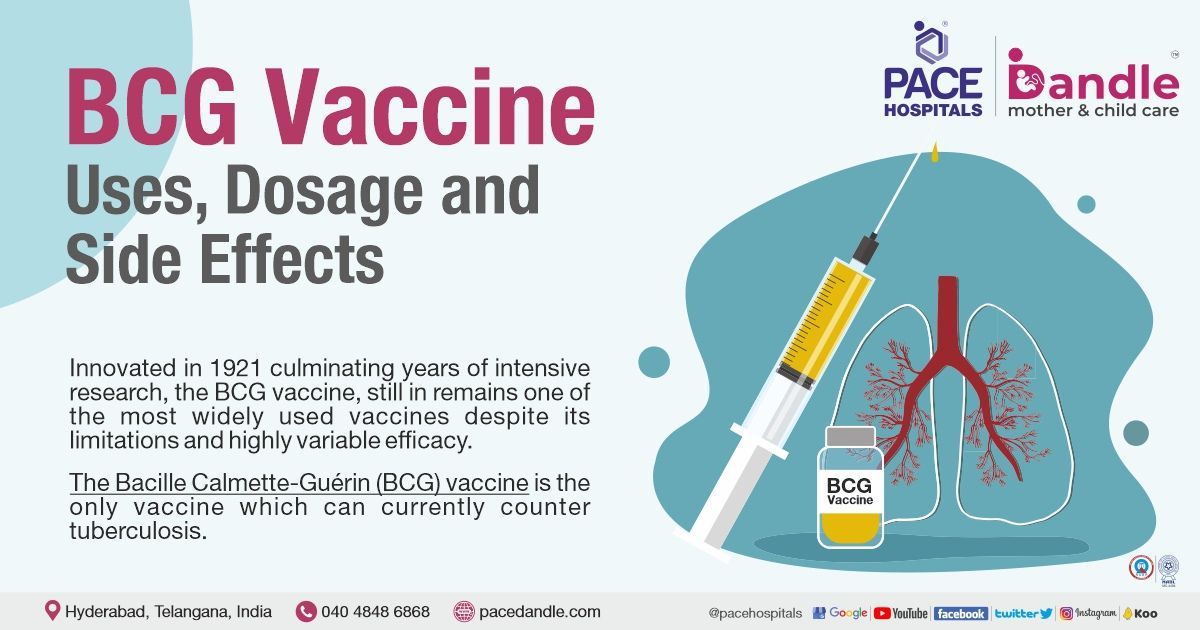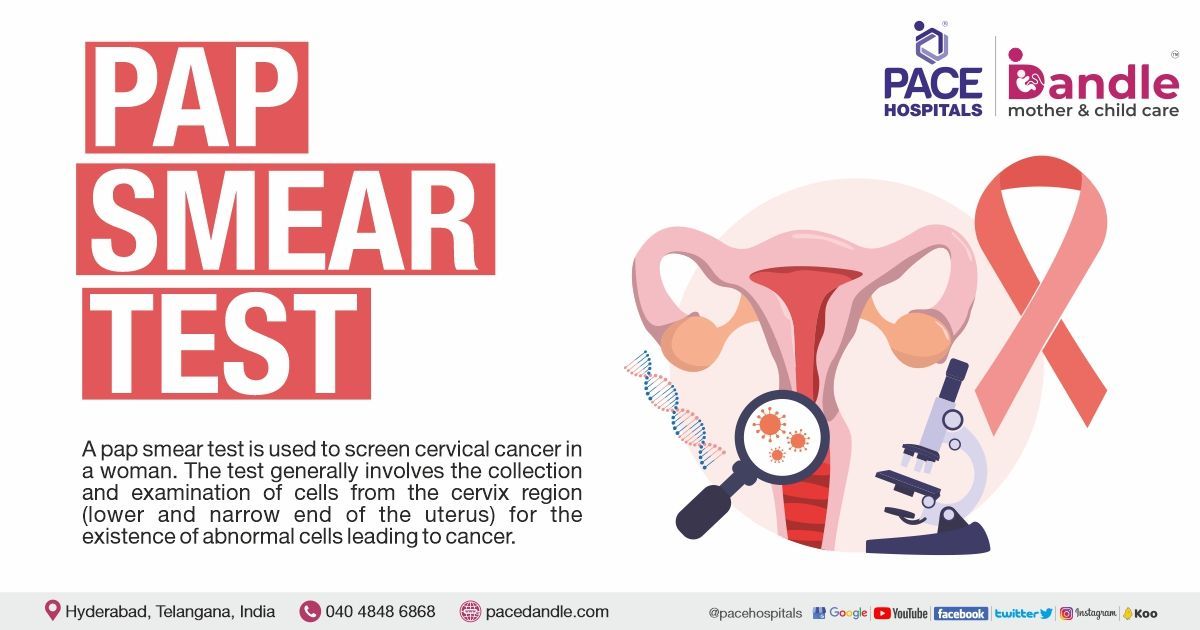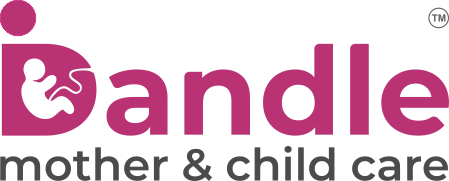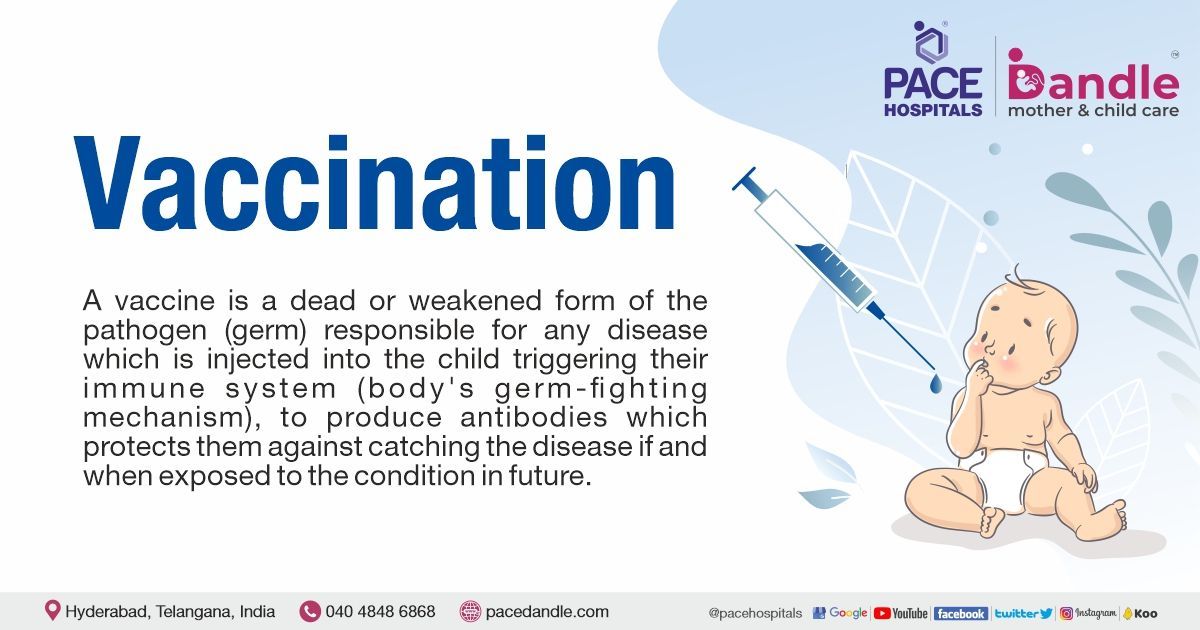Advantages of Breastfeeding - Benefits of Breastfeeding for Mother & Child
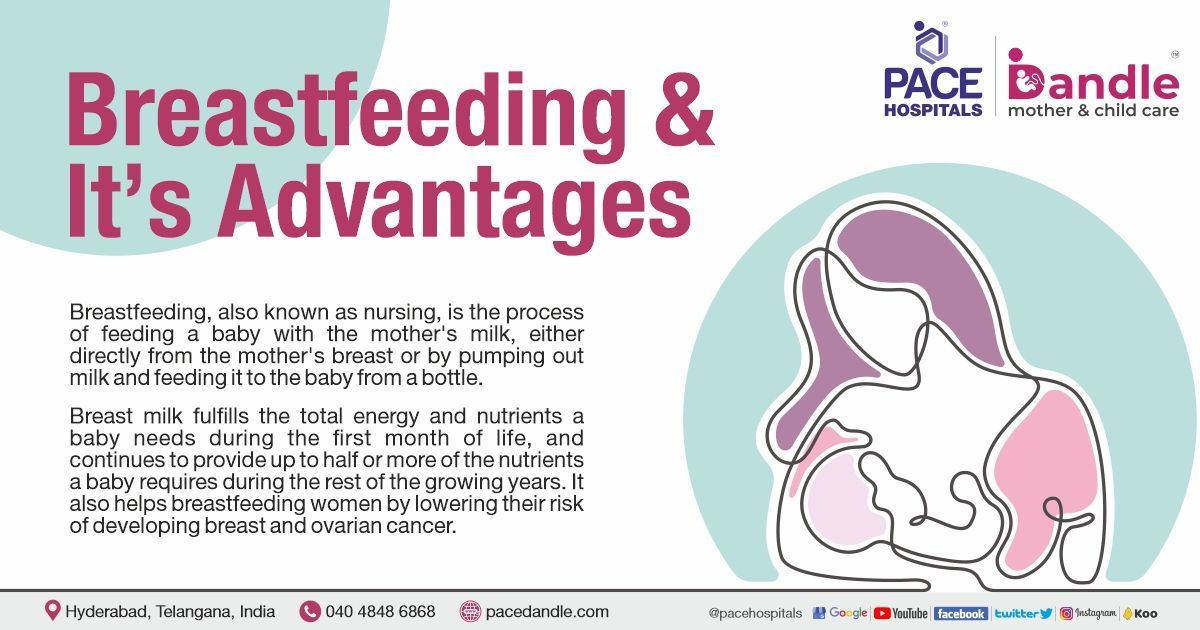
What is Breastfeeding?
Breastfeeding, also known as nursing, is the process of feeding a baby with the mother's milk, either directly from the mother's breast or by pumping out milk and feeding it to the baby from a bottle.
Breastfeeding is one of the proven ways to make sure your infant's health. Breast milk is a complete food for babies, and it is safe, pure, and contains antibodies that help protect against many typical children's ailments. Breast milk fulfills the total energy and nutrients a baby needs during the first month of life, and continues to provide up to half or more of the nutrients a baby requires during the rest of the growing years.
It has been seen that infants who have been breastfed are more associated with the benefits of breast milk and are likely to perform better on intelligence tests, are less liable to suffer from overweight or obesity, and are less prone to develop diabetes in a later stage of their lives. As advantages of breastfeeding, lactating women have a lower risk of developing breast and ovarian cancer.
Types of Breast Milk and Benefits of Breast Milk
There are three stages of breast milk, depending upon the duration of its production. All three types of breast milk are essential for infant nutrition, and the consistency of the milk gets thinner with the progression of the days. The stages of breastfeeding are as follows:
- Colostrum milk
- Transitional milk
- Mature milk
- Colostrum: It is the first milk produced by the breast after pregnancy. It is thick in consistency and looks yellowish. Colostrum is highly concentrated with minerals, vitamins, protein, and immunoglobulins- antibodies which help in the development of the baby's immune system. It is low in fat and sugar, which makes it easily digestible for the baby.
- Transitional milk: This is the stage when Colostrum turns into mature milk just after the four days of birth and lasts for a week. During this period, the breasts will get tender, dense, and fuller, indicating that milk production has increased to meet the hunger of the growing infant.
- Mature Milk: After 10–15 days, the Colostrum completely turns into mature milk with a thinner consistency, still with the adequate nutrients needed for the infant's growth.
Benefits of Breastfeeding for Baby
Breast milk is considered complete food for the infant, it contains all the nutrition baby need to grow. Breast milk contains an ideal combination of vitamins, protein, and fat in digestible form, which supports babies growth effectively. It also carries antibodies which helps fight infectious diseases caused by the bacteria and viruses.
Some of the prominent advantages of breastfeeding is it helps in fighting various disease to lower the risk of getting affected by it.
- It helps in lowering the risk for Asthma and Allergies
- Infant breastfeed for 6 months are less likely to be affected by ear infections (Acute Otitis media), respiratory ailment, and gastrointestinal infections (diarrhea/vomiting)
- It lowers the risk of obesity, as breastfed promotes proper growth of baby rather uneven increase in weight.
- Polyunsaturated fatty acid (Docosahexaenoic Acid -DHA), found in breast milk, supports efficient brain development.
- It helps lower the risk of developing type-1 diabetes in future
- It helps in the prevention of sudden infant death syndrome (SIDS)
- It lowers the risk of Necrotizing Enterocolitis (NEC) for preterm infants
- It reduces the frequent visit to doctor and chances of hospitalization
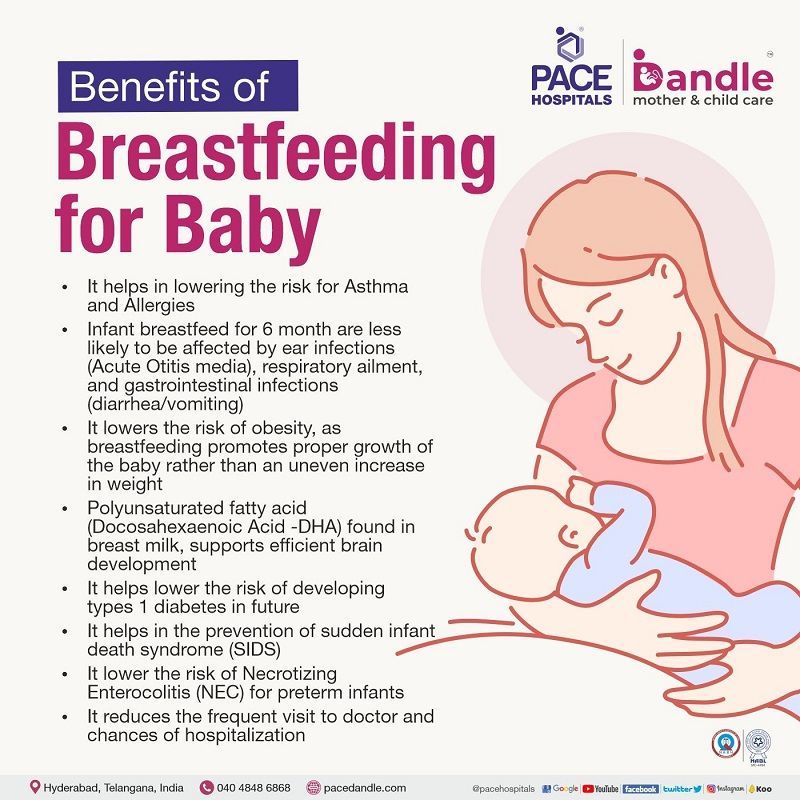
Benefits of Breastfeeding for Mother
The process of breastfeeding not only proves to be an immunity booster for the babies but also brings advantages to the breastfeeding mothers, as it involves physical activity and helps burn extra calories, which aid in faster pregnancy weight loss.
During breastfeeding, a hormone called Oxytocin is released, which helps in managing the uterus to regain its pre-pregnancy size and also lowers the uterine bleeding after birth.
Apart from the above-mentioned health benefits, breastfeeding helps in lowering the risk of getting various cancerous and non-cancerous diseases, which are as follows:
- It lowers the risk of osteoporosis
- It lowers the risk of developing breast and ovarian cancer
- Helps in the management of postpartum depression
- Develops deep mother child closeness
- Breastfeeding aid in delay menstruation (ovulation)
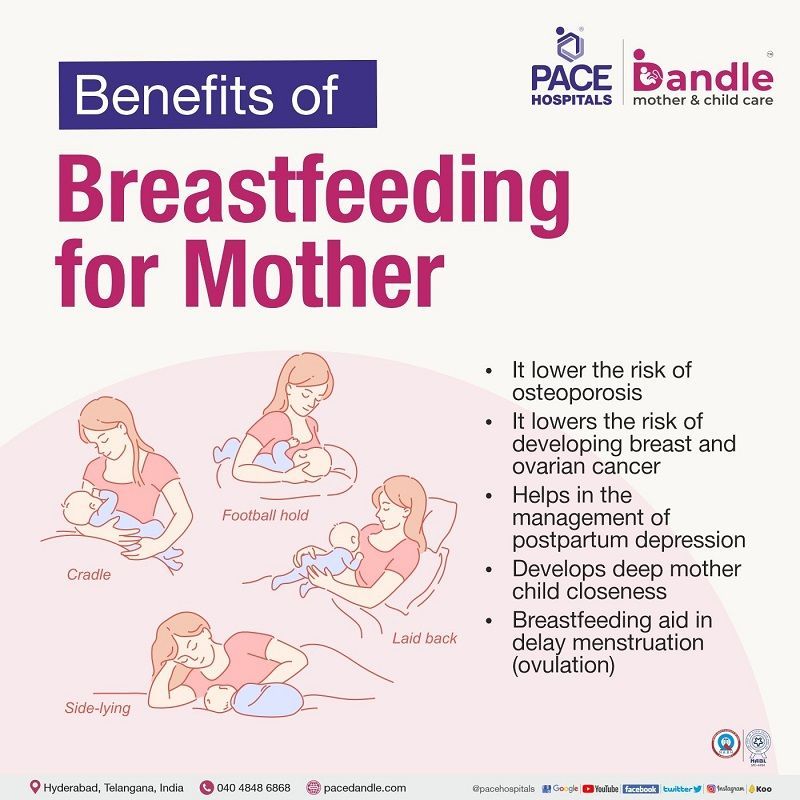
Frequently asked questions
To know more and how to breastfeed effectively, consult our super-specialist.
